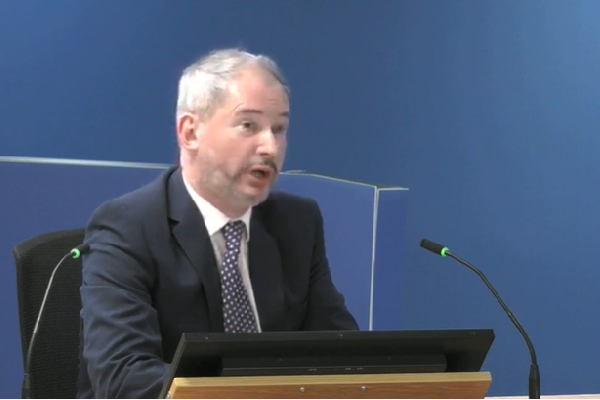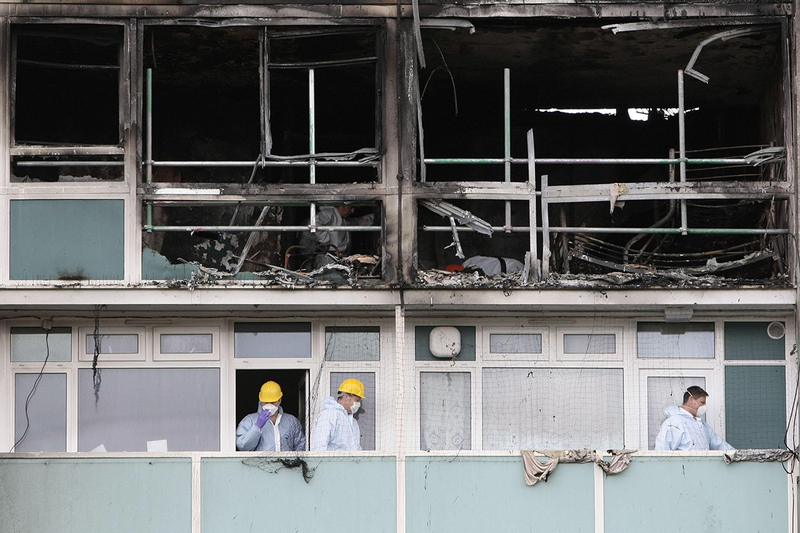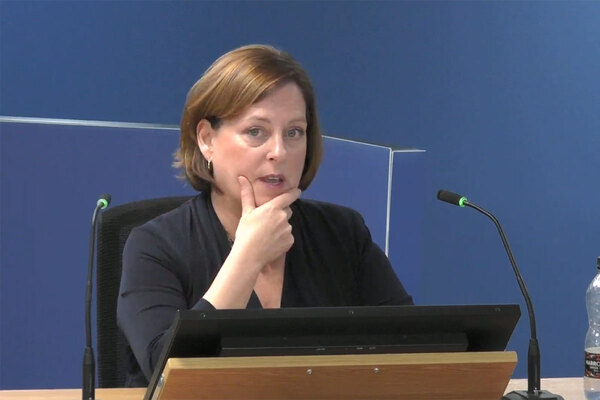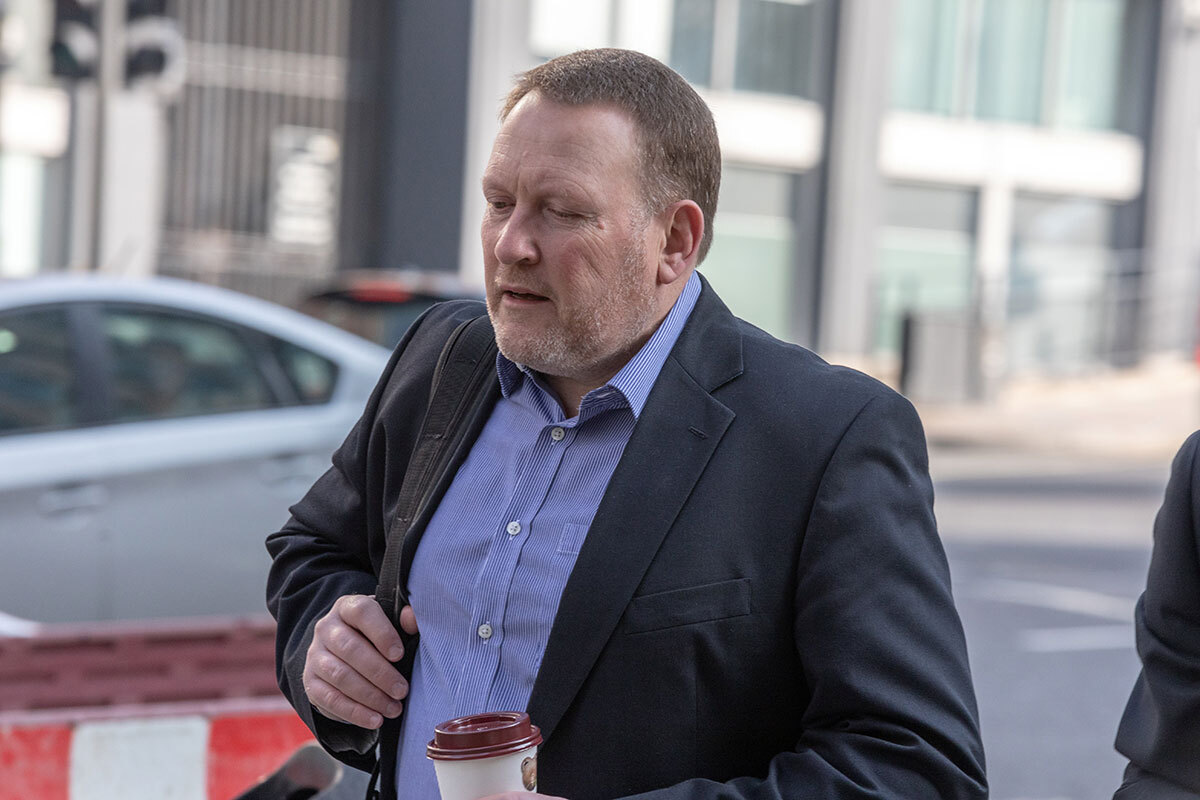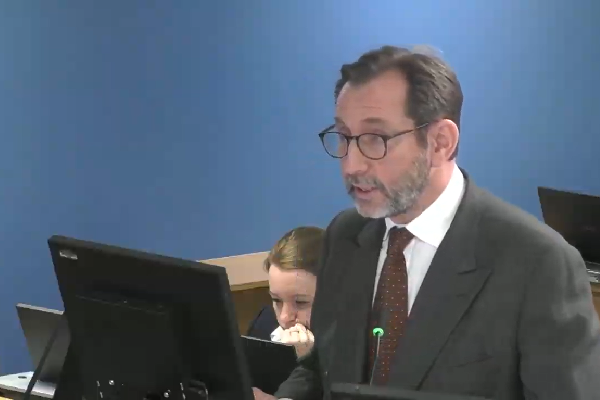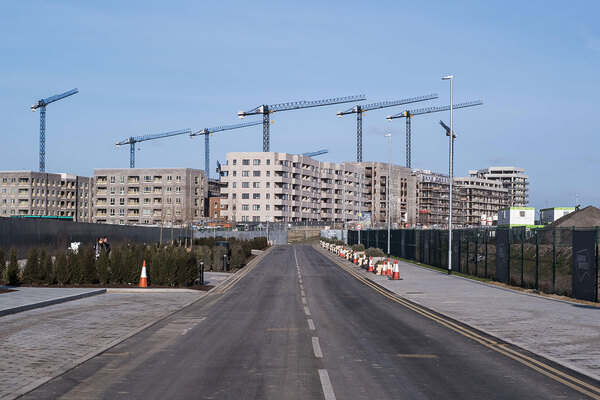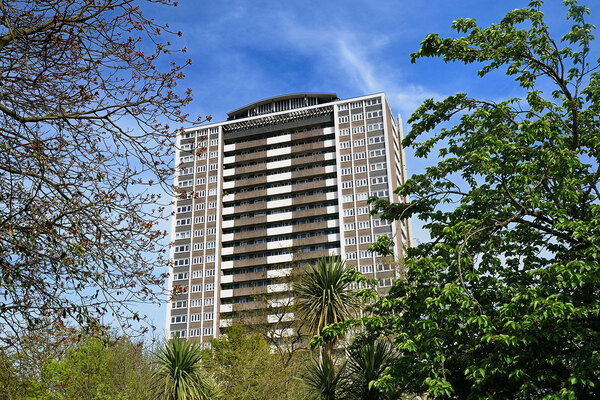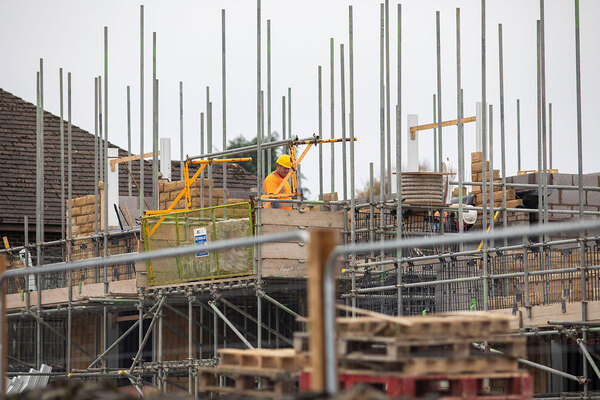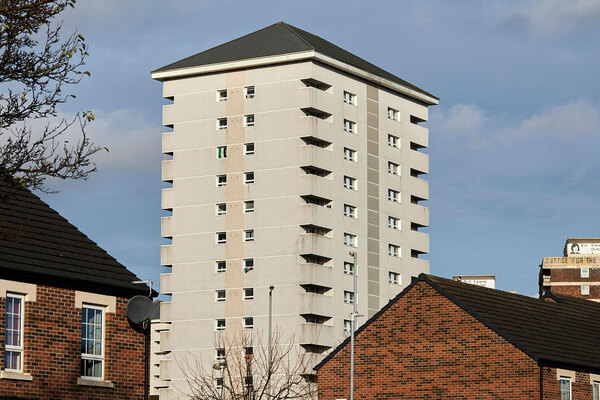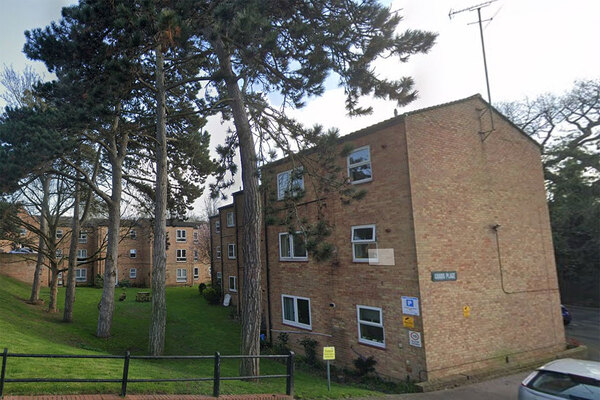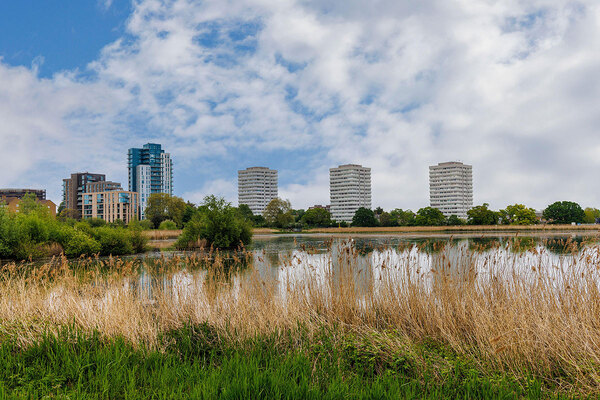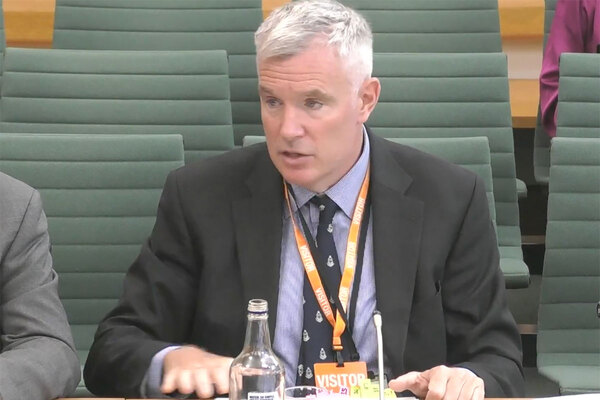Minister responsible for implementing Lakanal fire recommendations never read them
The minister responsible for implementing recommendations after what was then Britain’s worst tower block fire did not even read the coroner’s letter in which they were contained, the Grenfell Tower Inquiry heard today.
Stephen Williams was the minister responsible for building regulations in the Department for Communities and Local Government (DCLG) between October 2013 and May 2015.
Part of this job was to begin a review of fire safety rules contained in Approved Document B, which the government had promised would be completed by 2016-17, following concerns about the guidance raised by the coroner investigating six deaths in a fire at Lakanal House in 2009.
But Mr Williams said today that he never read the coroner’s letter and only discussed the fire on two occasions, despite receiving and responding to multiple letters from an All-Party Parliamentary Group (APPG) of MPs urging him to act faster.
He could not confirm whether he read these letters either, and accepted that one of his responses amounted to “brushing off” their concerns and claimed his officials were “furious” with him for meeting the group, chaired by the late Sir David Amess MP.
At the end of his evidence, Mr Williams insisted there was nothing he could have done to prevent the Grenfell Tower fire, getting the date of the fire wrong in his comments.
The inquiry saw a briefing prepared for Mr Williams on the government’s actions in response to the coroner’s recommendations in November 2013. Asked if he ever compared this briefing with her actual letter, Mr Williams said: “I honestly don’t think I ever saw it [the letter]. And the paper evidence trail shows that it was never shown to me.”
He explained that as then-communities secretary Eric Pickles had already responded to the letter, “it was concluded business to that extent”.
“Given that you were involved in progressing the actions in response to the coroner’s letter, Mr Williams, how could you possibly have undertaken that task without reading the coroner’s recommendations?” asked Richard Millett QC, lead counsel to the inquiry.
“What I’m saying is I never saw a physical copy of the actual letter… But I was advised that the coroner recommended that something be done about window installers, and that was addressed quickly,” Mr Williams replied.
As the inquiry has already seen, the Lakanal House coroner in fact made no recommendation regarding window installers, with the department’s officials electing to do this of their own volition.
“Were you ever made aware that the coroner didn’t actually make any recommendation about the competent person scheme [for window installers]?” asked Mr Millett.
“What you’ve just told me is quite surprising,” replied Mr Williams, adding that he had taken what his officials told him at “face value”.
“Well, you wouldn’t have done, would you, had you read the letter containing her recommendations?” asked Mr Millett.
“That’s true. That indeed is a fair point,” replied Mr Williams.
He had earlier described the competent person scheme as “the urgent thing that the coroner wanted dealt with”. The changes to this scheme were never completed, something Mr Williams said he only learned today when asked about it.
The coroner had, in fact, made three recommendations relating to the guidance in Approved Document B, including that it be reviewed to ensure it give adequate advice regarding external fire spread.
Mr Williams said this was never brought to his attention.
Asked if he knew the fire had spread up Lakanal House due to external panels on its exterior, Mr Williams replied: “No, we never had a really detailed conversation about what happened at Lakanal House.”
He added: “The discussion that I had about the circumstances that led to the Lakanal House fire were very short and at most only on two occasions.”
The fire was, according to a briefing document provided to Mr Williams by officials, was at the time Britain’s worst tower block fire, having killed six people, including three children.
The inquiry also heard about letters sent to Mr Williams by the APPG on Fire Safety chaired by Sir David, some of which were leaked to the press following the Grenfell Tower fire.
He said it was “difficult to say definitively yes or no” whether he had read any of these letters, explaining that he would generally only read the ministerial response which was drafted by officials.
“Most of my correspondence was signed in the back of a car… or on a train,” he said. “The private secretary… would hand me the letter, I would read it, sign it and hand it back to the official.”
The APPG was calling on the government to acknowledge new research that suggested sprinklers had become cost-effective and to alter guidance to remove the ‘Class 0’ standard for external wall panels.
The inquiry has already heard detailed evidence that this standard was too low and allowed dangerously combustible materials onto the walls of tall buildings.
Mr Williams told the inquiry he had never heard of the Class 0 standard, which has been a major part of the inquiry’s investigation, before he was asked about it at the hearing this morning.
A letter to the APPG sent in September 2014, signed by Mr Williams, said: “I have neither seen nor heard anything that would suggest consideration of these changes is urgent and I am not willing to disrupt the work of this department by asking that these matters be brought forward.”
Asked if he accepted this letter was “something of a brush off”, Mr Williams replied: “I would… I do now regret sincerely that this letter left the building. I desperately wish I had put a line through it and sent it back [to the officials] saying try again.”
The inquiry also saw that despite official Brian Martin recommending that he should not meet the APPG, Mr Williams did meet with Sir David and the group’s secretary, retired firefighter and sprinkler campaigner Ronnie King.
Mr Williams told the inquiry that this was because he had met Sir David in parliament and been asked by him personally to attend the meeting.
He described the late MP as “an Essex boy Eurosceptic who opposed same sex marriage and was a Thatcherite Tory”, with whom Mr Williams had “nothing in common”, but added that he “liked him personally”.
He said his officials were angry that he had taken the meeting, because they disliked Mr King and the APPG, saying that he was told by his private secretary that “they are furious with you for doing this but they won’t say so to your face”.
The inquiry saw emails among officials with one saying that the notes prepared for Mr Williams for the meeting showed “Brian [Martin] batting away” the APPG. “I’m pretty horrified,” said Mr Williams when shown the email. “There’s no excuse for that.”
Asked if this tone in an earlier letter revealed “barely concealed irritation” with the APPG, Mr Williams said: “It’s quite possible I was in a waiting room in Wolverhampton railway station or something and that I was signing lots of letters and quickly handing them back to the official. That clearly is an expression of irritation, but it wasn’t necessarily mine.”
The inquiry saw a further letter, which was also released since the fire, which warned that if there was “a major fire tragedy with loss of life… in a purpose built block of flats”, the group would bring Mr Williams’ responses to other people’s attention.
Mr Williams said he believes there was no record of this letter arriving at the department and suggested it may never have been sent.
“Do you accept now, looking at it, that the concerns of this group brought repeatedly to your attention as minister were not exaggerated doomsday warnings, but a genuine vision of mass death based on a deep technical knowledge and wide professional experience held by the members of the APPG?” asked Mr Millett.
“No,” replied Mr Williams. “I don’t think it’s fair for you to say as you just did that the group itself had detailed technical knowledge.”
The inquiry also saw that when Mr Williams, who lost his seat in the 2015 general election, was replaced by Conservative James Wharton. The APPG wrote to Mr Wharton saying it had felt “continuous frustration” with Mr Williams’ “dismissive responses”.
Asked about this, Mr Williams said the group should have focused on asking Mr Wharton why the review of the guidance was still not progressing, “rather than slagging off a departed minister”.
Their letter did, in fact, raise this issue in the very next paragraph.
Mr Williams was also asked about the focus on deregulation in the department. He said Mr Pickles took a tough line on regulation, referring to proposed rules as “regulatory madness” and describing the department’s officials as “Guardian-reading pinkos”.
“That’s a phrase he would have used by the way, I haven’t made that up,” he said.
Asked at the end of his evidence if he would have done anything differently, Mr Williams said he did not think there “was ever any critical moment in time, when I could have dragged the timetable [of the review of Approved Document B] forward”.
He added: “I don’t think there is anything I could have done to materially make a difference to what happened in July 2017.”
This is not the date of the Grenfell Tower fire, which occurred on 14 June 2017.
Mr Williams has stood for re-election to various positions since losing his seat, losing on each occasion. He currently works in public relations.
The inquiry continues tomorrow, with evidence from Gavin Barwell, former housing minister and chief of staff to prime minister Theresa May.
Mr Barwell also received repeated warnings from the APPG.
Sign up for our weekly Grenfell Inquiry newsletter
Each week we send out a newsletter rounding up the key news from the Grenfell Inquiry, along with the headlines from the week
Already have an account? Click here to manage your newsletters
Related stories
